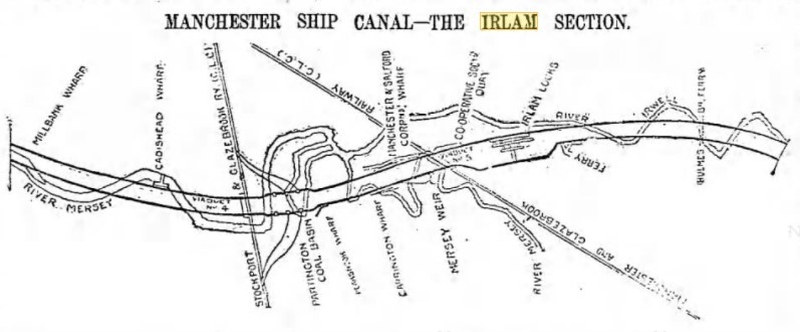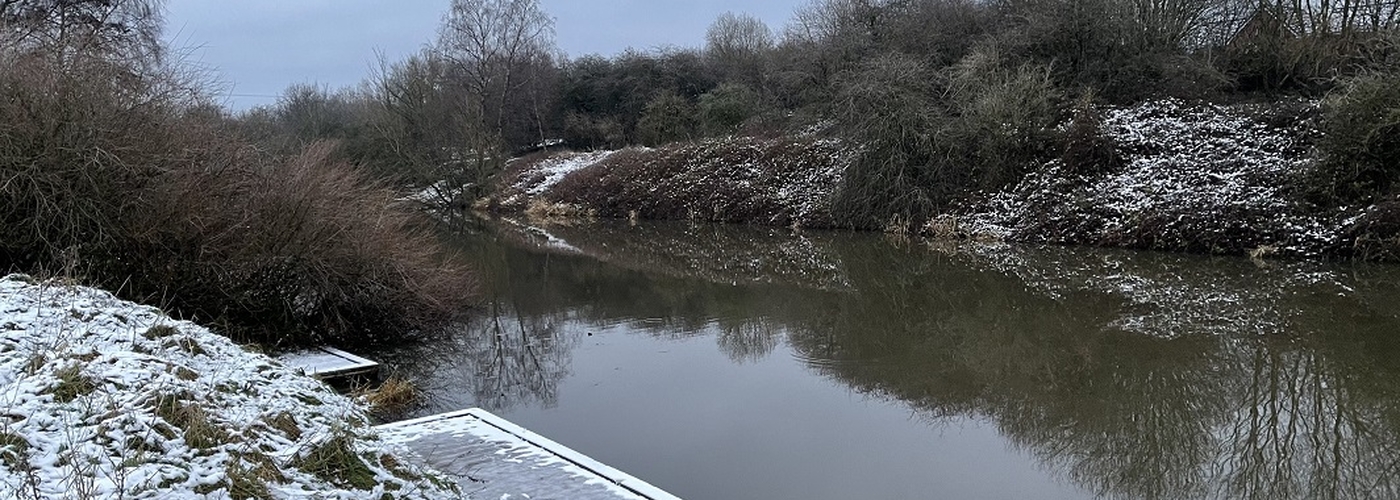Jonathan Schofield goes to Irlam for a lost river and a story of reinvention for the oldest fishing society
This is from The Manchester Guardian, 2 December 1893, writing about the construction of Manchester Ship Canal and how that affected the Rivers Irwell and Mersey at Irlam. ‘To advance four miles it was necessary to cross the course of the rivers fourteen times.’
It was brutal.
The Manchester Ship Canal sliced like a knife through the former river courses leaving strange long lakes where the old rivers had flowed. The canal stole their waters too as it needed to maintain its own water levels.
Yet, this rump river is definitely not a 'great useless trench'.
This was Victorian Manchester’s domination of nature writ large. Here was the might of civil engineering bending river courses to its will.
As that 2 December 1893 report puts it, ‘Manchester took hold of the river…’ It took hold of everything in the canal's path. Yet, even in its 2021 faded grandeur, the Ship Canal remains magnificent. To see the lock gates and the mighty sluices at Irlam is stirring. These are best appreciated from the east side of the canal on Irlam Road, Flixton.
The Irlam High-Level bridge is equally impressive here lifting the Manchester to Liverpool railway across the canal.
The lead engineer for the Ship Canal was Sir Edward Leader Williams. He was a genius.
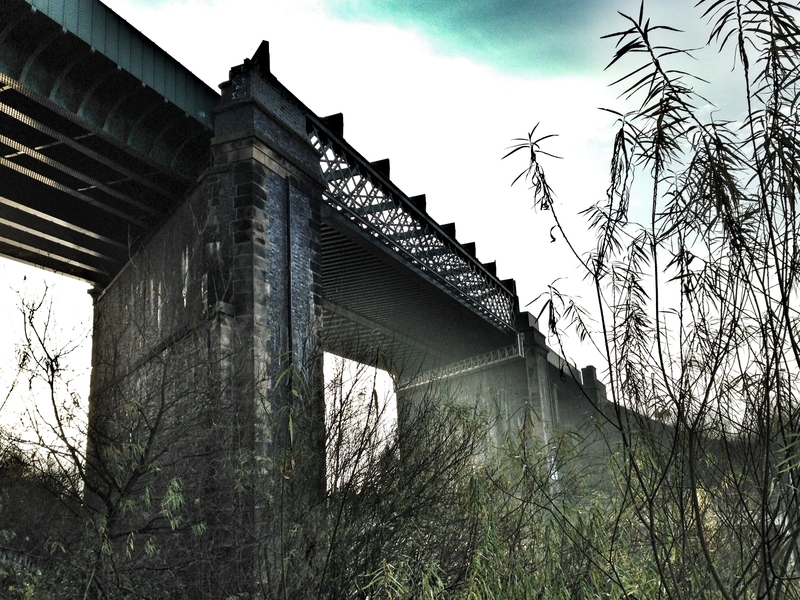
As for the bossed about rivers, let’s quote The Manchester Guardian again, with its charming 1893 tone. ‘The pedestrian must often pause in astonishment at the sight of these great, useless trenches scattered about in a promiscuous fashion. He comes upon them in the most unexpected places, abruptly starting at the bank of the canal and ending equally abruptly at another part of the bank’.
Most of these ‘promiscuous’ bits have disappeared. But one longish stretch of the redundant River Irwell remains in Irlam and makes for an entertaining short walk given the fact you are walking by a river that isn’t a river on a riverbank that isn’t a riverbank. It’s a curious sensation.
Yet, this rump river is definitely not a 'great useless trench'.
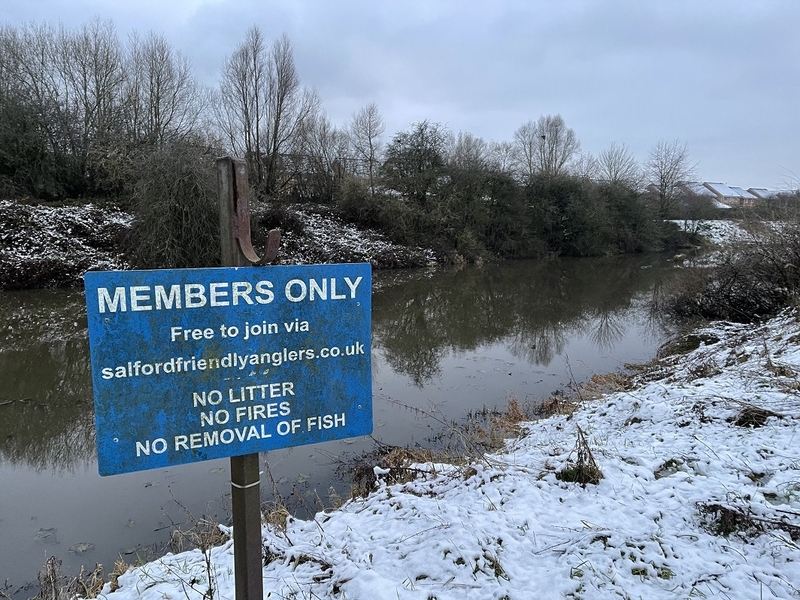
The ongoing story of the ‘Old River’ is heart-warming.
In the Kings Arms pub, just off Chapel Street, there’s a room with big fish displayed where the Salford Friendly Anglers Society meets. This is the oldest surviving angling club in the world and it’s related to that lost stretch of the River Irwell.
The Salford Friendly Anglers Society wasn’t just about fishing when it began in 1817. It was about fishy friends with benefits. This is what the history says: ‘As a result of the passing of the Friendly Societies Act, a group of like-minded anglers in Salford decided to institute a Friendly Society for the benefit of local anglers.
‘As well as offering fishing on the local River Irwell, society members as part of their subscriptions paid into monthly savings, sickness and death benefit policies. If an angler was unable to work through an accident or ill health they received an income of 5 shillings a month whilst unable to work. If a member died – then a levy of one shilling per member was paid out from club funds’. The society had its own pub for many years at 10 Chapel Street.
Unsurprisingly, it was called the Fisherman’s Hut.
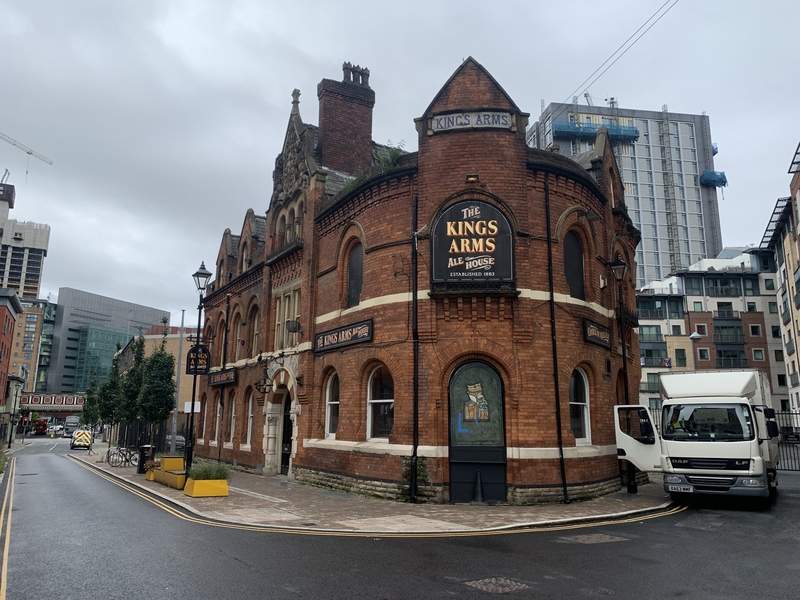
Of course, the nearby River Irwell became so polluted during the course of the nineteenth century the fish which hadn’t invested in full Hazmat died out. So that was all of them. To sidestep this the fishing excursion was instigated and after the Ship Canal was opened in 1894, a bit of the former course of the River Irwell in Irlam - our hero in this story - was acquired.
There were bad times and good times, but with membership at just ten in 2008 a decision was made to make membership free. And get this, there are now almost 4000 members – with loads of kids involved. Recently the free to join Salford Friendly Anglers Society has done some remarkable things.

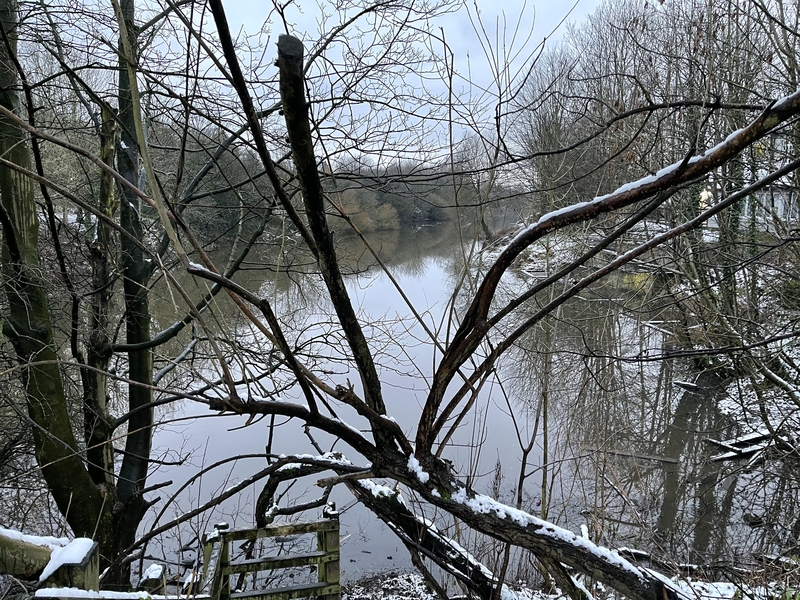
Let them blow their own trumpet.
‘In addition to securing fishing rights on 8 lakes, 13 miles of canal, and 6 miles of river… the committee has overseen the restocking of more than 50,000 fish into local venues in recent years to ensure that anglers can continue to enjoy great sport.’
This includes: ‘'7,000 tench, carp, roach, rudd and bream into The Old River in Irlam in partnership with the Hamilton Davies Trust.’
So, while the river might not be a river anymore it is certainly not that ‘useless trench’ described by The Manchester Guardian correspondent in 1893. This river, now, in reality, a thin lake, lives on in active use both as a place of sport and recreation.
The Irlam 'old river' can be accessed from Fairhills Road, off the A57 in Irlam.
